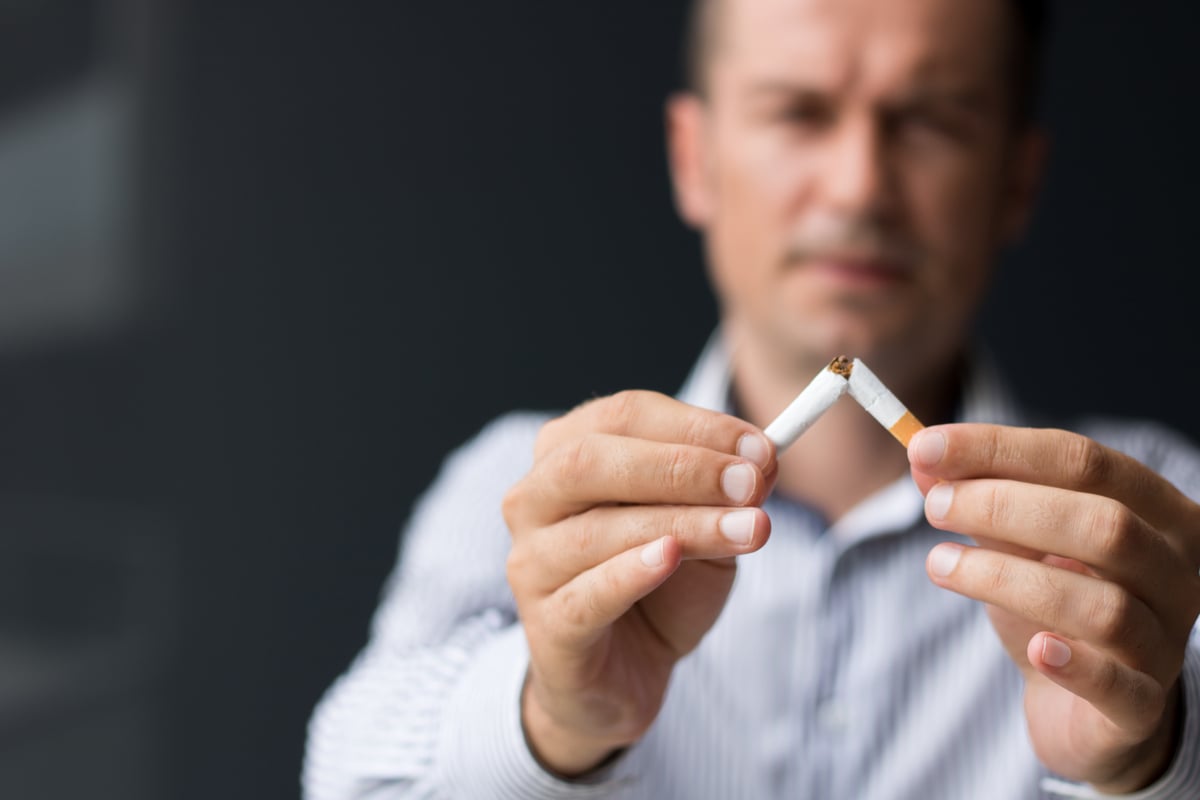This has not been a very good year for the electronic cigarette and vaping industry, which is enduring a withering attack from regulators concerned about teenage use of the devices. Having declared it an "epidemic," the Food & Drug Administration is clamping down on manufacturers, proposing to ban almost all flavors, and warning people against any vaping at all as a mysterious lung illness sickened and injured thousands and killed dozens of users.
Sensing the regulatory backlash that's building, numerous retailers stopped selling e-cigs in their stores, including Walmart, Kroger, and Walgreens. And now a new study from the National Institutes of Health may pour a bit more fuel on the fire.

Image source: Getty Images.
Marijuana vaping use surges
The annual Monitoring the Future survey released last week of eighth, 10th and 12th graders in hundreds of U.S. schools found that teens were vaping marijuana at their highest rate ever, at double the number who were doing so a year ago.
One out of every five 10th and 12th graders had used a vaping device to ingest marijuana in the past year, according to the self-reporting survey, while 7% of eighth graders had done so.
For 12th graders vaping marijuana in the past month, the number nearly doubled to 14% from 7.5% the year before, and it marked the second largest one-year jump in the history of the survey for any substance that it tracks (the jump in nicotine usage in 2017 to 2018 was the biggest increase).
The survey also began asking about daily marijuana vaping for the first time and found 3.5% of 12th graders, 3% of 10th graders, and 0.8% of eighth graders were doing so.
The report notes that "Marijuana continues to be the most commonly used illicit drug by adolescents," and points out that daily use of marijuana is increasing significantly among eighth and 10th graders since 2018, a potential cudgel that could be used to further criticize the industry.
JUUL has borne the brunt of the attacks
Leading e-cig maker JUUL Labs has been the primary target of much of the criticism because of its 75% share of the market, and the extreme popularity of the device with teens. Its sleek, thumb drive-like design has made it the vaping device of choice, and the company was forced to abase itself to counter the criticism launched against it.
JUUL announced it would suspend all marketing of its device, it would voluntarily stop selling flavored JUULpods, or the portion of the electronic cigarette that contains the nicotine-infused e-liquid, and it would cease supporting any industry initiatives opposed to further regulation of e-cigs.
That hasn't stopped some from believing there is no path forward through the regulatory process to keep the device on the market. Altria (MO +0.33%), which invested $12.8 billion in JUUL, has since written off $4.5 billion worth of its stake, causing it to swing to a quarterly loss. That may not be the last of the writedowns either, depending upon whether JUUL submits its premarketing application to the FDA on time and then can get through, which as just noted is in doubt.
Kids are avoiding even worse outcomes
Yet as incendiary as some anti-smoking activists may find the NIH survey, there was actually quite a bit of good news contained in it too. For example, abuse of prescription drugs such as Oxycontin, Vicodin, and Adderall all dropped significantly year over year, as did alcohol use and binge drinking.
Perhaps more noteworthy is the big drop in tobacco use by teens. Cigarette usage among 12th graders was down to 5.7% from 7.6% last year and 13.6% five years ago, and only 2.4% smoked cigarettes daily, a significant decline from 3.6% in 2018.
While the FDA has attacked e-cig companies because teens are using their products, it appears the devices are having the intended effect of weaning kids off the more harmful cigarettes.
Even so, 11.7% of 12th graders said they vaped nicotine daily, and the number of teens who said they were "hooked" on vaping more than doubled to 8.1% from 3.6%. Teens also said they vaped for a variety of reasons, including for the flavor, to experiment, for social reasons, or to feel good.
Smells like teen spirit
The survey's marijuana data also should not be a concern because although teens are vaping marijuana more than ever before, they're actually not ingesting anymore than they had been. They're just using it in a new way.
The study showed overall marijuana usage rates remained steady among teens, with nearly 36% of 12th graders, 29% of 10th graders, and 12% of eighth graders using.
Lower cigarette usage and steady marijuana usage, both as a result of increased vaping, suggest that while more needs to be done to dissuade teens from taking up vaping if they don't smoke, overall the kids are all right and maybe the industry shouldn't be vilified.








